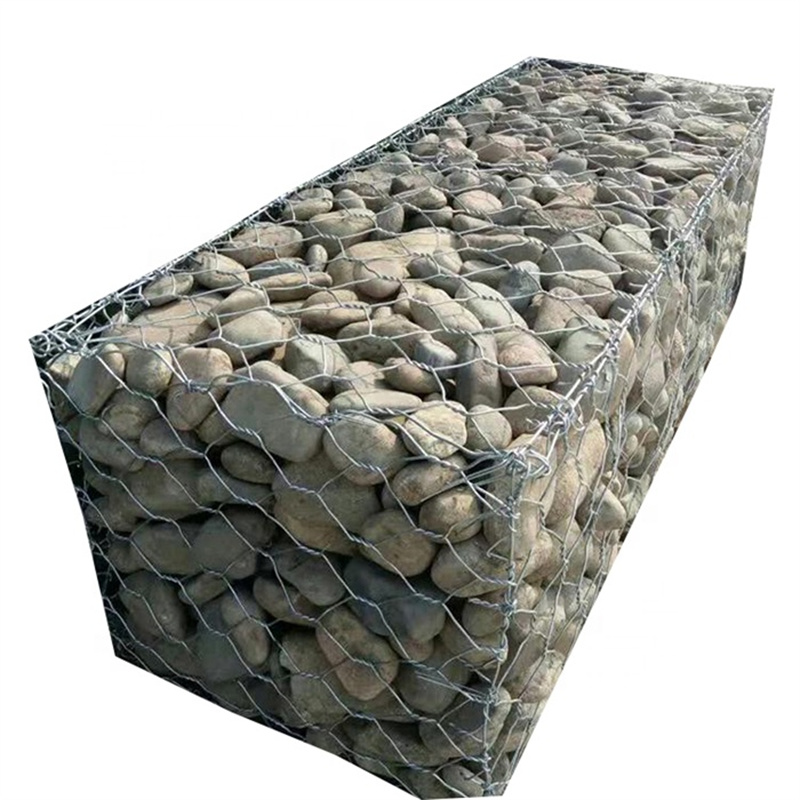تشرینی یەکەم . 12, 2024 08:59 Back to list
gabion wall pros and cons factories
The Pros and Cons of Gabion Walls An In-Depth Analysis
Gabion walls, composed of wire mesh cages filled with rocks or other materials, have gained popularity in construction and landscaping due to their unique aesthetic and functional properties. However, like any construction method, they come with their own set of advantages and disadvantages. Understanding these can help you make an informed decision when considering gabion walls for your project.
Pros of Gabion Walls
1. Cost-Effectiveness Gabion walls are relatively inexpensive to construct, especially when using local materials such as stones or gravel. This makes them an attractive option for budget-conscious projects.
2. Environmentally Friendly The use of natural materials minimizes environmental impact. Gabions can blend seamlessly into their surroundings, promoting biodiversity as they provide habitats for various species.
3. Erosion Control Gabion walls are highly effective in controlling soil erosion, particularly on steep slopes. Their porous nature allows water to flow through, reducing runoff and soil displacement.
4. Versatility These walls can be used in various applications, from retaining walls and landscape borders to garden designs. Their modularity allows for flexible designs that can fit different terrains and aesthetic preferences.
5. Durability Gabion walls are robust and can withstand harsh weather conditions. The materials used are resistant to wear and degradation, ensuring a long lifespan with minimal maintenance.
6. Aesthetic Appeal When filled with natural stones, gabion walls can enhance the visual appeal of a landscape. They can be designed in various shapes and sizes, allowing for creative landscaping solutions that add character to outdoor spaces.
gabion wall pros and cons factories

Cons of Gabion Walls
1. Construction Complexity Although relatively simple in concept, constructing gabion walls can be labor-intensive. Proper placement and alignment require skilled labor to ensure stability and structural integrity.
2. Limited Structural Performance While gabion walls provide excellent erosion control, they may not be suitable for applications requiring high structural loads. They are not designed to support heavy infrastructure, which can limit their use in certain projects.
3. Weed Growth The natural materials used in gabion walls can promote weed growth. Regular maintenance is required to manage vegetation and prevent the wall from becoming overgrown.
4. Weight Considerations Gabion walls can be quite heavy, especially when filled with dense materials. Proper site assessment is essential to ensure that the underlying soil can support the weight of the wall.
5. Corrosion Potential If not properly coated or protected, the wire mesh used in gabion walls can be susceptible to corrosion over time, particularly in areas with high moisture content.
6. Aesthetic Limitations While some view gabion walls as visually appealing, others may consider them unattractive or unsightly, particularly if the fill material is not well-selected or maintained.
Conclusion
Gabion walls offer a blend of advantages that make them a compelling choice for many construction and landscaping projects. Their cost-effectiveness, environmental benefits, and versatility make them particularly appealing for erosion control and creative designs. However, the potential challenges, including maintenance needs and weight considerations, should be carefully weighed. By thoroughly assessing your project’s requirements and site conditions, you can determine whether gabion walls are the right solution for your needs.
-
HESCO Gabion Baskets for Coastal Erosion Prevention
NewsAug.22,2025
-
Longevity and Durability of River Rock Gabion Walls
NewsAug.22,2025
-
How to Integrate Gabion 3D Walls in Urban Planning
NewsAug.22,2025
-
Reno Mattress Gabion Applications in Civil Engineering
NewsAug.22,2025
-
How to Install Wire Mesh for Gabion Baskets Properly
NewsAug.22,2025
-
Best Materials for Filling a Chain Link Gabion
NewsAug.22,2025
-
Wire Mesh Thickness Impact on Gabion Wall Load Bearing
NewsAug.12,2025






